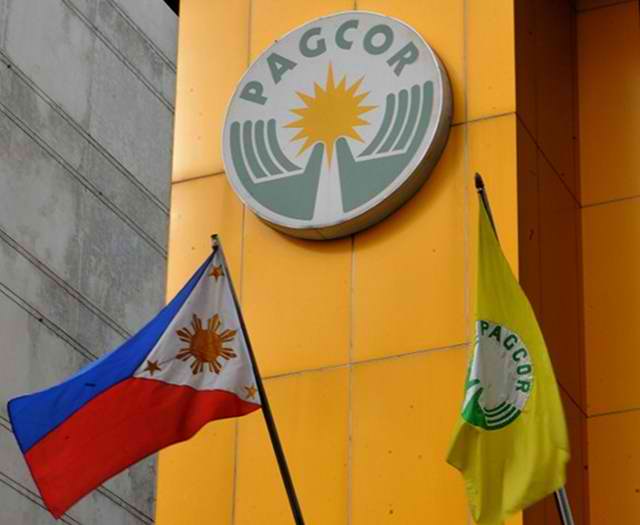Global online gambling is booming, although a major new analysis has found that about 61 percent of online betting sites are effectively operating illegally, especially in Asia, where junkets are playing an increasing role.
The 94-page report from the Asian Racing Federation examines a wide-ranging series of themes related to online gambling and the impact on gambling harm, licensed sports, and on sports integrity.
It also examines the role of Asia’s junket players, the growing “hybridization” of gambling sites and the proliferation of white label businesses.
The ARF report classifies the industry into three categories. The first are those sites that are regulated by the jurisdiction in which they are licensed to take bets and are therefore considered “licensed and regulated.”
The second is those that are licensed by a jurisdiction, but are under-regulated as they are taking bets from people located outside of those jurisdictions, where gambling is usually illegal. The third category has no license at all.
In its analysis of 534 global betting sites in 61 jurisdictions, it found that less than 40 percent were actually classified as licensed and regulated, meaning the majority are effectively illegal, especially those operating in Asia’s gray markets.
The websites included 262 of the most popular with global monthly visits of more than one million over the two-year period under review, from 2019 to 2021. In addition, it took a random sample of 93 websites and then 179 from an existing list of websites previously identified as likely to be illegal.
Online licensing?
In terms of jurisdictions, three were responsible for licensing almost two-thirds of the sites deemed as underregulated: Curacao, Malta and the Philippines.
Curacao took the lion’s share with 31 percent, followed by Malta at 18 percent and the Philippines with 13 percent. However, it points out that the exact number of websites in the latter is unknown as it doesn’t publish a list of URLs.

“Philippines-licensed operators target bettors in Asia, where online betting is largely illegal or heavily restricted, the report said. “Since Asian illegal betting is estimated by some to account for as much as 80 percent of the market, Philippines ‘licensed’ operators facilitate a large proportion of global illegal betting.”
Overall, the industry is growing significantly. Visits to online betting websites were up 37 percent in 2020/2021 compared with 2019/20. It said the trend holds true even after factoring in a discount due to a boost from the Euro 2020 football tournament that was held last year.
There were 39.75 billion visits to the websites, with the majority, or 76 percent, going to sites that were classified as Licensed and Regulated. The ARF said this was to be expected given these sites were the largest and best-known global brands.
Yet the fact that the remaining 24 percent of visits were to under-regulated or unregulated websites is troubling, it said and may be underestimated by a factor of five times, especially in Asia.
Traffic to licensed, but under-regulated websites was 6.78 billion and traffic to totally unregulated operators was 2.67 billion. Furthermore, growth was more pronounced in the unregulated sector, which saw its traffic gain by 64 percent.
The number of unique visitors was even more dramatic in the illegal sector, surging 97 percent over the period, compared with 31 percent in the regulated and 28 percent in the under-regulated categories.
The report notes that in Asia, bettors often do not interact directly with a website, but place wagers through agents. Therefore one “visit” as recorded by web analytics may reflect the wagers of tens or hundreds of bettors.
These illegal operations are also growing faster as they are able to offer a far wider variety of products than those available through licensed and regulated sites. They employ more aggressive marketing techniques and are not subject to the same operating costs, in terms of taxes and contributions to sports.
Junket concerns
Over the past decade, the use of casino junkets as an underground banking system has helped to fuel the growth of this illegal betting in Asia.
“As casinos and junkets have been severely impacted by the COVID-19 pandemic, it is highly likely that casino customers have migrated to online betting and gambling,” it said. “For their part, the junkets have been compensating for the loss of revenue in their physical casino businesses by diversifying across Asia with casino investments in other countries, as well as further investments in online betting and gambling.”

There is even more concern when it comes to Macau’s junkets, which continue to be dominated by triad groups as it will help spread organized crime.
Two of Macau’s leading junket bosses – Alvin Chau and Levo Chan – are currently in detention after being accused of organizing illegal online gambling. Chan, who was the head of the Tak Chun Group, has in addition been accused of links to triad organizations.
China’s crackdown on capital outflows for gambling may also exacerbate the problem, pushing the junkets to diversify their business and focus even more on illegal online betting.
AGB will be bringing more insights from the ARF report in coming days.











